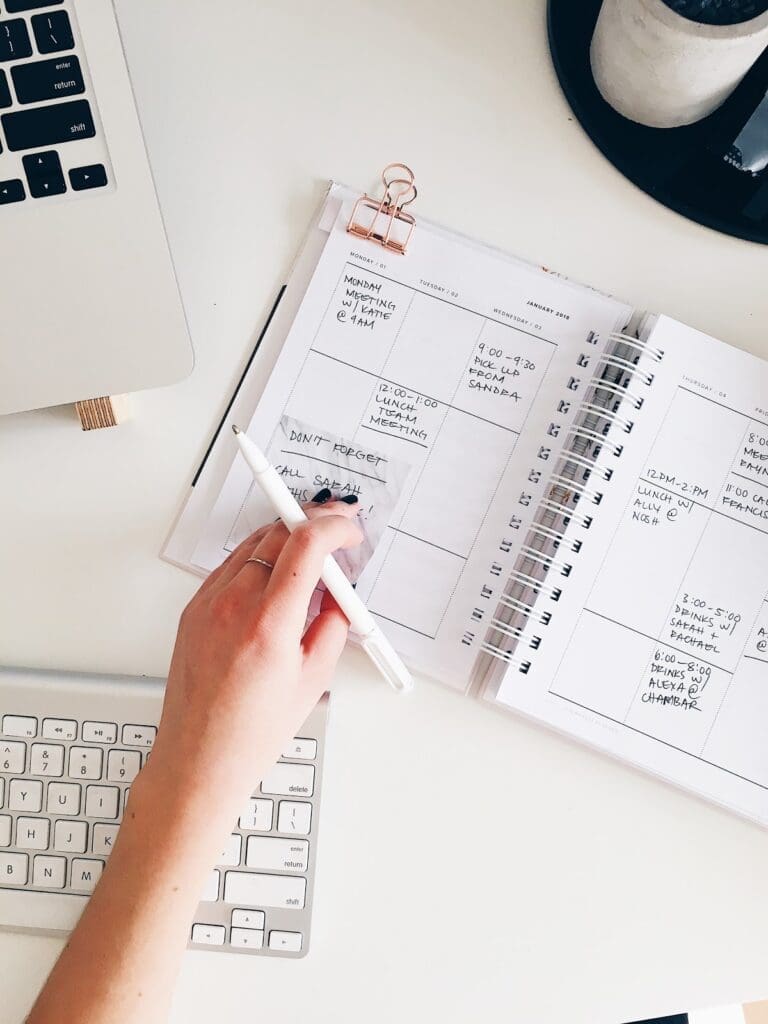Does Your Small Business Need to Lodge a Business Activity Statement (BAS)?
Whether you are a current or aspiring business owner, the question of how much tax your small business needs to pay may cause you many sleepless nights. The Business Activity Statement (BAS) is oftentimes at the centre of concerns. We are here to give you peace of mind and answer all the questions our small business clients ask us on a frequent base, including who needs to register for BAS, how to lo lodge and benefit from it.
As a small business owner, you’re in good company: As of June 2018, there are over 2.3 million small businesses registered nationwide. If this is your first entrepreneurial venture, there is usually a lot of learning involved. From acronyms to paperwork, there’s more to a business than just generating an income to pay the bills and save money for the next vacation.
What Role Does the BAS Play in Your Small Business’ Success?
The Business Activity Statement is a record that is completed upon lodging a tax return and then sent to the Australian Taxation Office.
But here is the important clue: You will only be required to lodge a BAS when you have registered for the Goods and Services Tax (GST). And you are only required to register for GST, when your business’ expected gross income (excluding GST of 10%) is equal to or more than $75,000.
As most business owners do not hit the ground running, it might not be necessary to register for GST in the early stage of your business. However, once you do start seeing a satisfying turnover, it is a legal requirement to register within 21 days of your GST turnover exceeding the threshold.

Don’t worry, it’s not all up to you. When you register for an Australian Business Number (ABN) and GST, the Australian Taxation Office (ATO) will automatically inform you when a BAS is due to be lodged.
A large part of BAS is directly related to the GST. When you complete a BAS lodgement you are reporting the Goods and Services Tax amount you’ve collected on your sales minus any that you’ve paid on your purchases, with the difference being your refund or what you owe to the ATO.
Now that you know what the BAS is all about, let’s take a closer look at how a small business is impacted by tax returns and how it can profit from them. This may surprise you, but small businesses oftentimes have more of an advantage when it comes to paying tax, as opposed to large corporations.
Tax Benefits Of A Small Business
Being your own boss is one of the perks of running a business. You will also be able to take advantage of various tax credits and deductions that are aimed at supporting the small business owner. Reduced educational costs, travel expenses and home repairs are just examples.
There is only one requirement: You must have the proper records showing how these expenses relate to your business operation. An experienced bookkeeper can help you keep track of all transactions, costs and generated income and produce financial statements.
Two examples of small business tax perks:
HOME OFFICE
Having a home office pays off: As a small business owner running operations from the comfort of your home, you’re able to deduct portions of your yearly utility costs for electricity, water, cable, telephone and even internet bills.
TRANSPORTATION COST
Most small businesses will rely on a car, be it to transport goods or visit clients. The cost of operating a car is also tax-deductible. The key is, once again, keeping proper records to prove business usage. Creating a logbook of how many miles you drive to client sites and other places is the first step. The current rate is 68 cents per kilometre for 2020. Refer to the ATO website for mileage rates, as they change often.
Small Business Equipment and What you Can Claim
You can claim back GST on products used to conduct business, even if your own product or service is GST-free. Here is a shortlist of some of the things you can claim.
Claimable items can include:
- Work Tools: Anything from computers, printers, internet security to sophisticated software, home office expenses and stationery
- Consultants: Services you used such as advertising, marketing and the cost of advertising, but also bookkeepers and accountants and their services etc.
- Assets: Any item of value owned by the company, which can be both physical or intellectual property.
- Fees and Bills: Bank fees, phone, internet, electricity and water bills, insurance premiums, legal fees and even rent
- Travel: Business motor vehicle usage, including luxury car leases, business travel expenses including cost for flights and hotels, parking cost
- Work Clothing: Protective clothing, necessary outdoor gear
- Education: Technical or professional qualifications
- Employees: Salaries, wages, bonuses or allowances, super contributions for employees, and some contractors paid primarily for their labour

How to Lodge Your Small Business BAS
The ATO makes the process of lodging your BAS relatively painless, but there is still some work to be done. The good news: You can lodge your BAS online in a few simple steps. You can either submit the statement using your online accounting software, through your myGov account (only for Sole Traders), via the ATO’s online services for business or by having a registered tax or BAS agent. Our friendly team of expert accountants and bookkeepers can help you with the latter.
What Information do You Need to Have Ready?
Here are the basic steps to preparing and lodging a BAS with the ATO:
Lodging your BAS is only then a daunting task if you have been slacking with the documentation of your business’ income and expenses over the previous months. Documentation really is key to making tax declarations as painless as possible.
- Start by taking a close look at your financial records and making sure that all of your bank statements match the information you’re passing on to the ATO. This also includes any purchases, cash expenses, and relevant outstanding funds.
- Make it a habit to collect receipts and invoices for business transactions as well as receipts and invoices for any cash transactions. Better even, no matter how small your small business: Use separate bank accounts for private and business purposes – Even if you’re a “one (wo)man show”.
- You’ll also need to keep track of how much GST you’re collecting on sales, and how much you have spent on purchases. You won’t need to submit tax invoices when you lodge your BAS, but you should have the ready as the ATO may ask to see them later.
- Because your BAS may also be used for other tax reasons, you will need to provide extra information about your business, its income, and any employees you may have. Learn more on the ATO business activity statements page.
- If you’re using Xero, an online accounting software, you should run the Bank Reconciliation Summary, to check if your actual bank balance and the balance of the bank account in Xero match. If your balances don’t match, run the report to check for missing, deleted or duplicated transactions.
- Once you have completed the BAS, keep your records up to date with new information. You can choose to mail a hard copy to the ATO or file your BAS online through the ATO portal, or to make your life easier: Have your tax agent lodge it for you.
- Last but not least: Make sure you pay what you owe on time or alternatively, make arrangements with the ATO for a payment plan.
BAS Due Dates to Keep in Mind
You should take lodging and paying your tax in a timely manner very seriously. When and how to pay your tax, is displayed on your business activity statement. Should the due date fall on a weekend or public holiday, you have until the next business day to lodge and pay. We recommend setting calendar reminders on your phone for lodgment key dates, using the ATO app. A registered tax or BAS agent can help you lodge your activity statements.Tip: If you lodge online, you’re eligible for an extra two weeks to lodge and pay your quarterly BAS.
GST reporting and payment cycles
- Quarterly: For GST turnovers under $20 million.
- Monthly: For GST turnover of $20 million or more.
- Annually: Voluntarily registration with a GST turnover under $75,000 or $150,000 for not-for-profit bodies.

In a Nutshell: Successfully Lodging Your BAS
Remember, you only need to lodge a BAS when you have registered for GST. And you are only required to register for GST, when your business’ expected gross income (excluding the GST of 10%) is equal to or more than $75,000.
Don’t forget to:
- Collect receipts and invoices for business transactions as well as receipts and invoices for any cash transactions
- Use separate bank accounts for private and business purposes
- Be aware of payment cycles and due dates that apply to your business
- Make sure you pay what you owe on time or make arrangements with the ATO for a payment plan
While lodging your BAS is not too difficult if you’ve kept your books organised, it can still be an immense help to bring in a professional. Owning and operating a successful small business is a full-time job and not everyone is a naturally born talented accountant.
Since 2007, Shoebox Bookkeeping has been assisting many small business owners with their affordable tax packages, giving every small business owner peace of mind knowing they are supported by like-minded people. If you’re struggling with your figures, contact Shoebox Bookkeeping for more information.